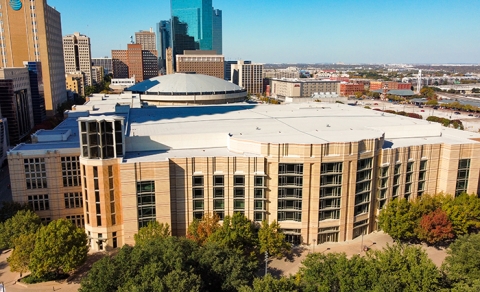Fort Worth Convention Center Will Move Forward with Expansion Plans Next Year

Following a pause in plans due to the pandemic, the Fort Worth City Council recently approved $52 million in federal American Rescue Plan Act (ARPA) funds to support the first phase of a planned expansion of the city-owned Forth Worth Convention Center (FWCC).
The downtown facility’s $500 million expansion, which had been in the planning stages for several years to attract and accommodate larger trade shows and meetings, was about to begin with robust funding from hotel occupancy taxes when the COVID-19 shutdown began in 2020, according to city officials.
“We had our first meeting with the design review committee in February 2020, and then two weeks later, our plans were shelved indefinitely,” explained Mike Crum, director of the City of Fort Worth Public Events Department, which oversees the operations of the FWCC and Arena, the Office of Outdoor Events and the Will Rogers Memorial Center and Coliseum.
He continued, “With this kickstart in ARPA funds, we can revisit the design with new insights from meeting planners on what they and their attendees now expect from a venue in terms of overall experience.”
According to FWCC officials, the expansion project will take place in two phases, with the first phase designed to prepare the venue to operate during the second phase. It will include the construction of new food and beverage facilities, the relocation of a city street in order to create a site for a future convention hotel and the rebuilding of the facility’s loading docks. This initial phase is fully funded and expected to start in the spring of 2023.
The project’s second phase will include the demolition of the FWCC Arena, built in 1968, and will create more than 97,000 square feet of exhibition space, additional flexible meeting rooms, a new 60,000-sq.-ft. ballroom and renovation of the current facility, which was previously expanded in 2002-03.
This phase will be funded when hospitality taxes recover to the degree that they can support the issuance of $450 million in debt to fund the construction, according to FWCC officials.
Currently, the FWCC offers 253,226 sq. ft. of total exhibit space; 58,849 sq. ft. of flexible meeting space; a 28,160-sq.-ft. ballroom; 38 breakout rooms; and a 55,000-sq.-ft. Events Plaza.
Crum added that the project’s original plans may be updated to meet the pandemic-altered needs of meeting and event planners.
“The group meeting business has categorically changed in the past two years,” he said. “We may be adjusting the design plans to meet different needs than the initial plans of more ballroom and exhibit space, i.e. a broadcast studio to conduct hybrid meetings or other technology assets like virtual reality that are becoming an expectation, not an optional add-on.”
Don’t miss any event-related news: Sign up for our weekly e-newsletter HERE and engage with us on Twitter, Facebook, LinkedIn and Instagram!


Add new comment